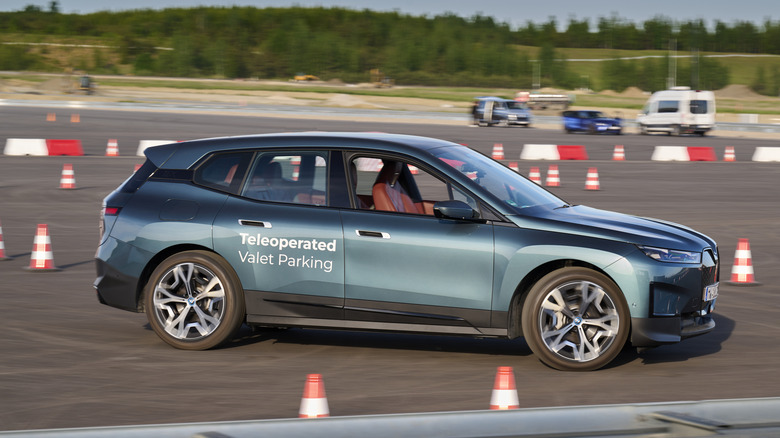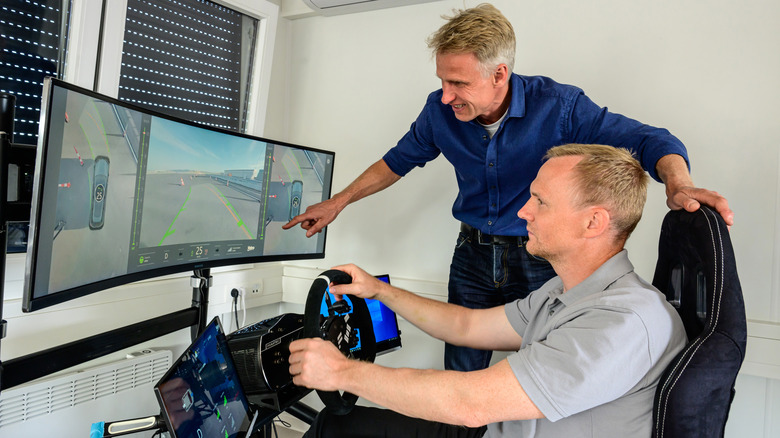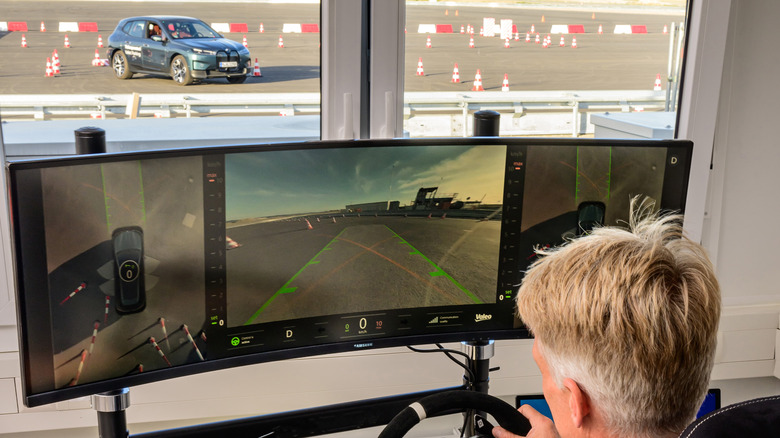BMW's Remote Parking Cars Won't Be Putting Valets Out Of Work
Like many manufacturers, BMW is putting a lot of effort into its self-driving systems. One of the more promising areas self driving tech could make an impact is in parking garages. BMW has been developing automatic parking systems for years now, and it's one of the areas Level 4 self driving tech is being put to good use.
BMW is backing the Automated Valet Parking (AVP) standard. Fellow German car builders, Audi and Mercedes, are also on board with the system and another German company, Bosch, developed it. The logic is, if each company had their own valet parking system, then adoption would be poor and customers would be frustrated. AVP uses sensors placed throughout the garage to feed vehicles information on their location, the location of free spots, and the whereabouts of other moving vehicles. Using that information, a car can find its way from a drop off point to a free spot and back, without anyone physically sitting in it.
The system is already up and running in Germany. Stuttgart Airport has it, and according to Bosch, 15 more garages will debut AVP by the end of 2023. But there is an alternative in the works which may be simpler to install, has the potential for wider adoption, and will leave fewer valets filing for unemployment.
There is some middle ground
BMW is launching an "teleoperated" parking system that it says will improve efficiency, make things easier for drivers, and still find room to employ valets. The cars using this system won't be driving themselves but will instead be remotely controlled by parking attendants, via a setup that closely resembles the high-end racing rigs some gamers use. A BMW driver simply leaves their car in a designated area of any parking lot using the system and selects an option to have it parked on the app. A valet can then take over remotely, park the car for the owner, and later return the car to the designated area when the owner arrives to pick it up.
The system itself is remarkably simple, so it shouldn't take long to train potential valets in its use. It centers on a one-pedal system, so the valet has to apply pressure to the "gas pedal" to make the vehicle move, and it will automatically brake when that pressure is lifted. Speed is capped at 10 kmh (6.3 mph) going forwards, and 6 kmh (4mph) while in reverse.
Steering is controlled via a wheel, and the valet has all of the vehicle's driver aids at his or her disposal. That means turns are mapped out on monitors, cameras relay the situation around the vehicle, and things like a top-down view can be taken advantage of. Aids like collision detection and automatic braking also provide somewhat of a safety net.
It may be coming to a parking lot near you
Like BMW's other automatic parking systems, the remote-valet will make its debut in Germany before eventually rolling out further afield. However, as a good amount of the tech is app-based and already built into many of the cars, and this new system doesn't involve fitting a parking garage with expensive sensors, there's a chance that this style of remote-parking could become the more popular system by a long way. The teleoperated system uses the same 5G infrastructure cell phones rely on to relay communications between the control center and vehicle.
As far as training goes, the system itself is incredibly easy to use. We had the opportunity to test it out ourselves, and managed to remotely navigate a track without damaging BMW's test car. Valets who do end up using the system may also be more efficient, as they'll be sitting in the same chair and won't have to run back and forth between parking spots and the little valet podium.
There is currently no word on if BMW will tune the app to meet various cultural sensibilities — if you're used to tipping your valet, for instance, there's no guarantee you'll be able to with the telepresence version. But either way, the pros seem to outweigh the cons with this system. It's cheaper to install, convenient for customers, and fewer humans lose a living to the unrelenting march of technological progress.


